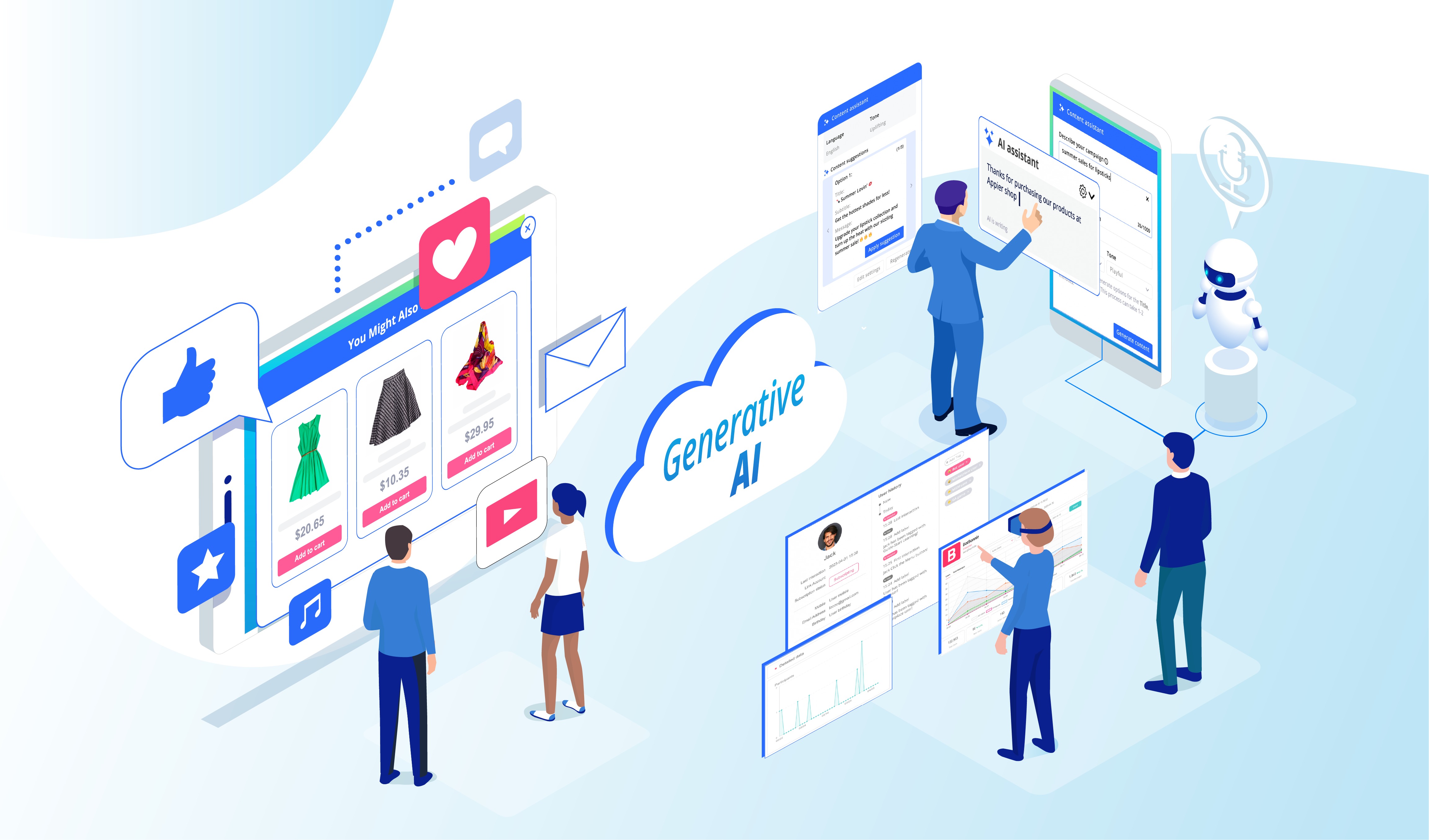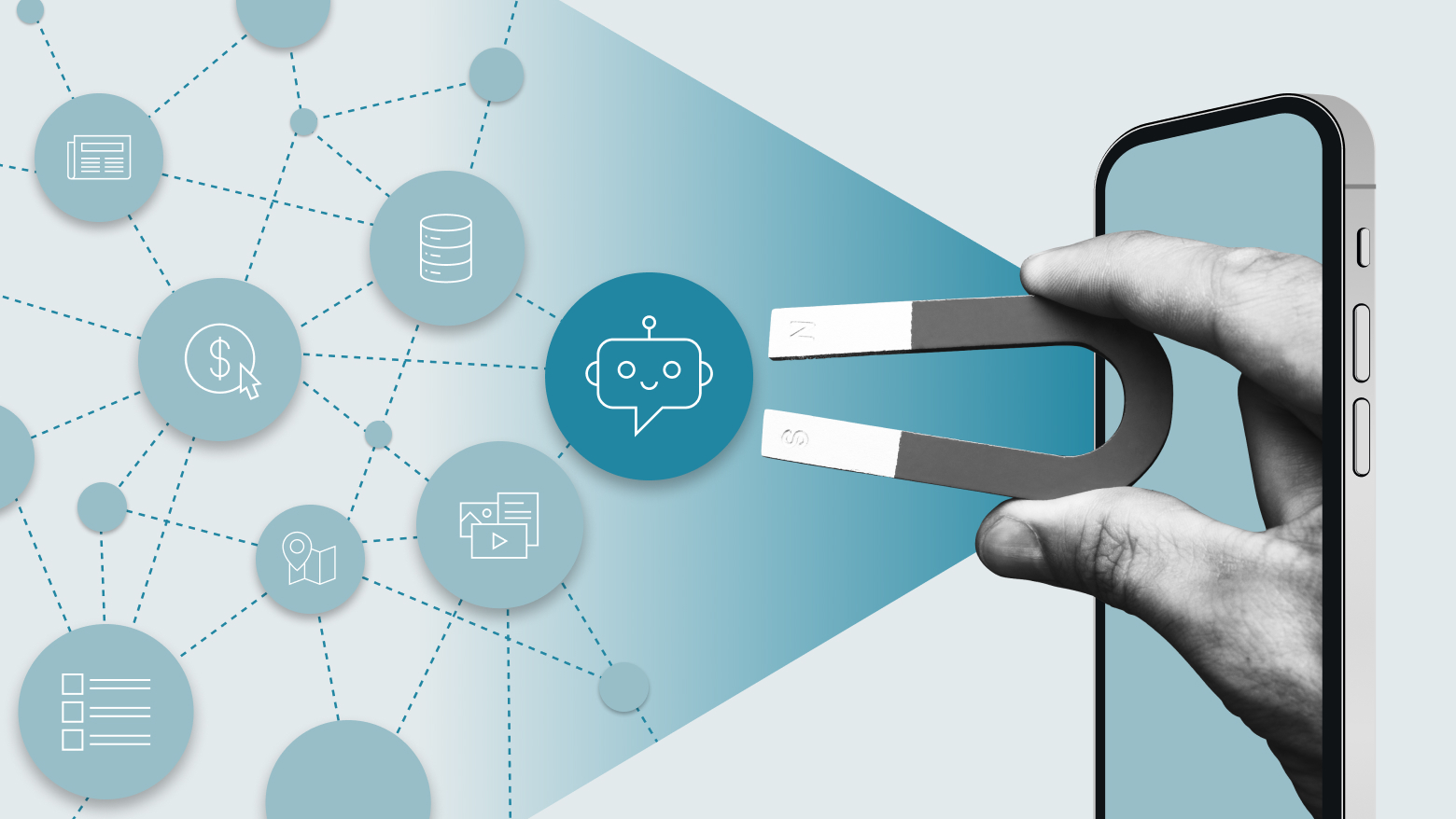
Artificial Intelligence (AI) is a revolutionary force that is changing the fundamental fabric of content production in a world where technology is developing at an incredible rate.
2024 promises to be a historic year for AI, with companies like Google, Meta, and Mistral at the forefront of the revolution. There will be significant changes in the IT business, from conversational AI to open-source models and visual AI.
With forecasts pointing to a market boom, AI's quick rise is becoming more and more evident. The worldwide AI investment, which is expected to reach $200 billion by 2025, demonstrates a significant financial commitment and faith in the revolutionary potential of AI.
This article is all about navigating AI content in 2024. This article predicts essential advances in artificial intelligence, ranging from the potential economic effects of AI to regulatory actions. The revolutionary potential of AI portends a complete restructuring of civilization by the year 2024.
Generative AI Leaps From Hype To Center Stage
Just as airships are making a resurgence, generative AI is poised to transform the IT industry, moving from a hype-cycle balloon that's "going to burst" to a fundamental strategy and more of a sure thing.
Large businesses are seeing a paradigm change in how they approach innovation and problem-solving as they transition from testing to using generative AI. This technological reversal suggests a comparable, if not bigger, influence on the tech ecosystem than the revolutionary wave caused by the early adoption of cloud technology.
According to Forbes, 97% of business owners already think that generative AI solutions like ChatGPT will benefit their company. Therefore, the year 2024 is one in which generative AI is not just a catchphrase but also a vital force behind corporate change and technical growth, where strategy is strategy, even in AI.
Each Data Platform Introduces Its Vector Data Offering
Given that generative AI relies on vector databases, all of the major companies in the data platform industry will likely provide their approach to resolving this problem. While vector databases are not a novel idea, they are not generally associated with the "modern data stack" and have been employed in the past for search engines and other machine-learning applications.
More sophisticated generative AI use cases, including conversational memory, searching your papers (RAG), and multi-modal solutions like image indexing, depend heavily on vector databases. It should come as no surprise that demand skyrocketed in the middle of the previous year as multi-modal models became more widely available.
We may probably anticipate significant participants in the current data platform market, like Snowflake, to follow this trend in 2024, given that Databricks recently released their vector data solution. More nearby technological companies may follow suit and provide a range of features and services. In 2024, almost all database systems will refer to themselves as "vector stores."
Alongside this change in usage, senior data and software engineers' skill levels are likely to increase as they get more familiar with ideas like vector indexes, embeddings, semantic search solutions, and maybe even algorithms like BM25.
For example, Chroma, Weaveate, Pinecone, and Qdrant are some of the first contemporary vector search solutions that the generative AI community may choose to acquire or finance further.
Tailored AI Models
Customized AI models, which provide solutions tailored to specific sectors, are expected to increase. Businesses will gain from this upsurge as it will provide them access to more potent tools for addressing issues unique to their sector, improving productivity and overall results.
By 2024, AI should have developed more potent models that can comprehend and produce material in many information formats at once, allowing text, pictures, video, and audio to all be combined seamlessly.
This progression reflects a more significant movement towards responsible and user-centric AI applications, and it is consistent with an increasing focus on ethical issues and laws in AI.
The trend of customizing AI for individualized user experiences is being complemented by the growing integration of AI in the workplace to improve staff experiences. These advancements help to create an AI environment that is more inclusive and moral.
Artificial Intelligence In Software Development
The vast majority of us have used one or more applications or pieces of software that have built-in artificial intelligence capabilities in order to develop content, carry out activities, and do a great deal more.
ChatGPT, for example, provides you with a plethora of information, Midjourney offers creative images, and Textdrip makes use of artificial intelligence to assist users in the generation of intriguing material that they may send to their clients on their behalf.
On the other hand, by the year 2024, the software development industry will have reached its pinnacle, reaching a new level at which artificial intelligence will help not only software consumers but also software creators.
Tools such as Copilot from GitHub make use of artificial intelligence to enable software engineers to devote less time to writing code and more time to developing software solutions that are centered on the client.
A paradigm shift is represented by the use of artificial intelligence (AI) for software development, which involves the design, development, and testing of software solutions utilizing AI technologies. Additionally, it enables the team to swiftly respond and iterate on the input, which contributes to an increase in the team's overall productivity.
Advancements In Open-Source Fine-Tuning
To anticipate significant improvements in open-source artificial intelligence models during the first quarter of 2024, researchers will continue to share enhanced fine-tuning methodologies.
In particular, models that have been explicitly fine-tuned for reasoning tasks and mathematical/logical difficulties are positioned to decrease the gap with proprietary counterparts such as GPT-3. This is especially true in areas such as the capacity to recognize false claims and common sense.
By the end of the first quarter, specific open-source models may even approach performance levels that are equivalent to those of humans (exceeding 75 percent) on very complex mathematical and logical reasoning benchmarks.
Despite the fact that worries regarding the possibility of benchmark manipulation continue to exist, it is projected that significant progress will be made in natural language tasks.
Agentic AI
These artificial intelligence systems are intended to function independently, making decisions and carrying out activities based on their comprehension of the surrounding world and the goals they have set for themselves. They vary from standard artificial intelligence in that they are able to begin activities without being prompted by humans.
For example, they may monitor environmental conditions in order to forecast and notify about forest fires, or they can manage financial portfolios in real time without any human intervention.
Enhanced Customer Experience (CX)
With 'gen AI,' which emphasizes personalization and improvement for the purpose of enhancing customer experience (CX), the transformation of customer experience (CX) is on the horizon.
The implementation of this integration is expected to result in beneficial ripple effects, such as higher customer satisfaction, loyalty, and retention measures. These enhancements will eventually have a favorable influence on both revenue and the reputation of the company.
AI is playing a significant part in the transformation of the Customer Experience (CX). The implementation of automated support, tailored services at scale, proactive help, and natural language processing for improved communication are all included. The use of deep customization creates a paradigm shift in the way in which organizations interact with their clients.
Starbucks is an excellent example of this trend since it uses artificial intelligence (AI) through a product called Deep Brew, which employs machine learning and predictive analytics.
Utilizing this technology, marketing messages can be customized, customer loyalty can be fostered, and inventory management can be managed at the shop level. The strategy taken by Starbucks exemplifies how artificial intelligence may significantly help to improve the entire consumer experience.
Augmented Working - AI As A Collaborative Partner
In the workplace, artificial intelligence will bring about a fundamental shift in human-machine interaction, and it will emerge as a crucial collaborating partner across a variety of industries. The use of generative artificial intelligence will be considerably more widespread in the year 2024, despite the fact that the focus over the previous several months has been on how it may assist with the development of content.
A particular emphasis will be placed on the capabilities of artificial intelligence to assist with advanced analytics, to assist with project management by means of predictive insights, to revolutionize coding by means of automated code generation and debugging, to improve healthcare by means of precise diagnostics and patient care, and to elevate customer service by means of sophisticated virtual assistance.
These advancements call for a rethinking of traditional employment responsibilities, with a significant focus placed on training programs that teach people how to make efficient use of the possibilities of artificial intelligence.
One of the most important ideas is that artificial intelligence (AI) is transforming the landscape of professional contexts through the synergistic combination of human creativity and emotional intelligence with the analytical capabilities of AI.
AI Predictions For Marketing In 2024
Artificial intelligence is expected to have a significant impact on marketing in the year 2024, causing a paradigm change in the way that firms interact with their target customers. It is anticipated that a number of forecasts and trends in the year 2024 will shape the marketing environment;
AI-Driven Consumer Insights
It is anticipated that artificial intelligence will play a significant part in the comprehension of customer behavior. This will enable marketers to examine large volumes of data in order to discover trends and preferences, which will ultimately result in more focused marketing and greater hyper-personalization.
Predictive Analytics And Decision Making
As a result of the incorporation of predictive analytics that are powered by trustworthy and open-source artificial intelligence, marketing choices will be driven less by intuition and more by forecasting that is supported by facts.
Marketers will be able to obtain a more in-depth understanding of the preferences, habits, and trends of their customers, which will help them to develop more successful strategies for segmentation, targeting, and positioning.
Refinement Of Ad Targeting
Marketing professionals will be able to comb through vast quantities of audience data and make adjustments to ad targeting and messaging, which will result in advertisements that are more accurate and have a greater degree of customization. Artificial intelligence will further enhance ad targeting.
According to these trends, artificial intelligence will continue to be a driving force in marketing. It will enable businesses to understand their consumers better, make choices based on data, and improve the whole experience that customers have interacting with the company.
Suppose marketers are going to successfully traverse the transformational potential of artificial intelligence and harness its powers to build marketing strategies that are more customized, data-driven, and effective. In that case, the year 2024 is going to be a test of their ability to focus.
AI Agents Will Start Communicating With Other AI Agents
Imagine a functioning ecosystem in which specialized agents, each of which possesses its own distinct skill and knowledge base, engage with one another and work together. By the year 2024, we will continue to observe the expansion of this sector as a result of the development of artificial intelligence "agents."
We shall witness the emergence of agents that go beyond only catering to specific needs, such as composing my email, resolving a problem with customer care, or placing an order for my groceries, and instead enter into an ecosystem in which agents begin to engage in conversation with one another.
The notion of data products is intimately associated with this paradigm change. With the help of data products, businesses will have the ability to monetize their agents in the same manner that they did with their models and datasets.
A new ecosystem of intelligent beings that are networked will be fostered as a result of this. It is reasonable to anticipate the introduction of new agent solutions that go beyond the digital workforce to include agent orchestration, management, and monitoring.
Additionally, players in the digital robotic process automation space, such as UiPath, as well as humanoid advancements for manufacturing and plant work, will begin to enter this space with their prior experience in automating and robotics systems at scale.
FAQs About Navigating AI Content In 2024
How Can You Prepare Your Workforce For The AI-Driven Future?
Ensure your employees are prepared to adapt their skill sets and work alongside AI to create a more efficient and effective work environment
How Can You Identify AI-Generated Content?
Learn to recognize AI-generated content by analyzing its originality, insightfulness, and brand alignment.
How Can AI Help You Enhance Data Accuracy?
In 2024, AI is expected to play a significant role in enhancing data accuracy and improving the overall quality of AI-generated content.
Final Thoughts
Taking about navigating AI content in 2024, without a doubt, 2024 will be remembered as another crucial year in the development and use of artificial intelligence. Unlike predictions based on past boom and bust cycles, AI development is still moving forward at an exponential rate, even in the face of a short slowdown in public excitement.
The significant trends influencing the marketing environment in 2024 are the applicationof AI for improved customer experience, predictive analytics and decision-making, improved ad targeting, and consumer insights powered by AI.
To guarantee a responsible and long-lasting AI application, organizations must, however, navigate the difficulties and ethical issues surrounding AI. Employees need to be ready to modify their skill sets in order to fit into a professional environment where artificial intelligence plays a major role, as AI takes on a growing amount of tasks.






